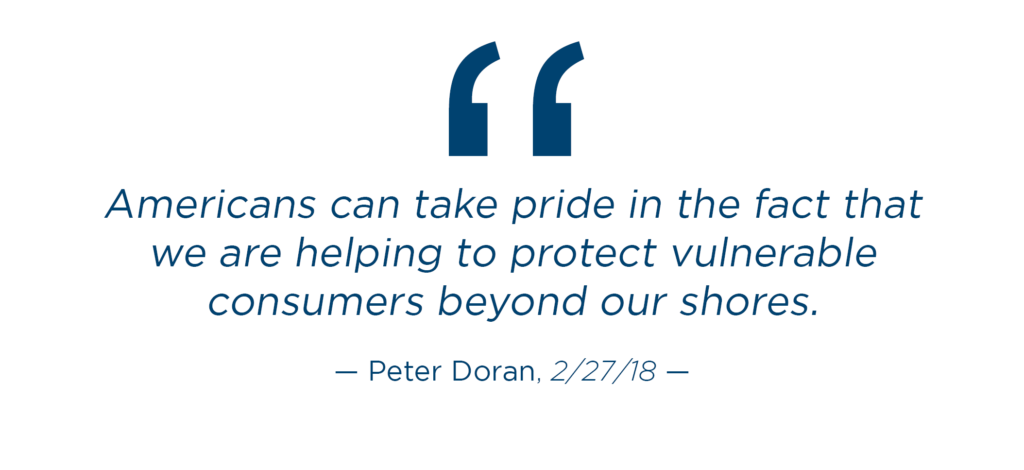As natural gas production continues to rise, a U.S. House Natural Resources subcommittee this week examined the role of LNG exports in strengthening America’s geopolitical standing. With Dominion’s Cove Point LNG export terminal in Maryland scheduled to go into service next month, the U.S. will have additional opportunities to leverage its energy abundance as a diplomatic tool abroad. And as Deputy U.S. Energy Secretary Dan Brouillette recently said, America’s emergence as a net energy exporter spells “complete energy security.”
Here are the highlights from yesterday’s hearing:
Peter Doran, Center for European Policy Analysis:
“More than practically any other commodity, energy relations bind countries together. [Russia wants] America’s allies to be dependent on Russia’s state-owned energy companies to fuel their economies and keep their citizens warm in winter…This is Russia’s aim—and we should not let the Kremlin win. …
We should view America’s capacity to export LNG to the world as more than just an economic boon at home. This capacity offers profound strategic benefits to America. …
The North American shale revolution has positioned the United States to bring ever-increasing levels of LNG onto the global energy market. It is exceptionally beneficial to our allies and partner countries in Asia, Europe and elsewhere. In some cases, our energy shipments are helping to diversify allies away from sole-source dependence on Russia. …
Americans can take pride in the fact that we are helping to protect vulnerable consumers beyond our shores; and to increase their leverage in energy negotiations with Moscow.” (Testimony, 2/27/18)

Meg Gentle, President & CEO of Tellurian, Inc.:
“U.S. LNG exports advance American geopolitical interests and leadership by strengthening the energy security of our allies and improving air quality through clean-burning natural gas. …With more investment in American energy infrastructure, the United States is uniquely positioned to support global energy security and air quality through a leadership position in LNG markets for decades.
U.S. LNG exports can also fuel economic development and help meet basic human needs for many of our allies and friends around the world. Hundreds of millions of people remain without access to reliable and cleanly-produced electricity, including nations in the Middle East, Asia, Latin America, and Sub Saharan Africa. Even those with access to electricity often face severe air pollution, harmful to human health and the global environment. Low-cost, clean, and reliable LNG can help tackle these issues and improve diplomatic relationships with our allies.” (Testimony, 2/27/18)
David Livingston, The Atlantic Council:
“There are a number of benefits that accrue to the United States from exports of liquefied natural gas and the expansion of domestic natural gas production needed to support them. Increased LNG exports can help to narrow the U.S. current account deficit, expand economic activity and employment in the natural gas extraction, processing, and related industries, and aid broader American foreign policy goals…As such, increased LNG exports would indeed appear to strengthen the U.S. position in global geopolitics.
The United States is better-suited to deliver lower-carbon gas than many of its competitors, given both numerous homegrown technologies and innovations that help reduce emissions, as well as the comparatively more sophisticated environmental policy-making apparatus of the United States.” (Testimony, 2/27/18)
Christopher Smith, Cheniere Energy:
“The United States is still adjusting from an age of scarcity to an age of abundance with respect to energy, and U.S. LNG is showing the benefits of that abundance. The export of natural gas from the U.S. as LNG is driving beneficial changes in the global natural gas trade – changes that help make the fuel mix of many existing trade partners more sustainable, more economic and more secure. It also has and is expected to open new trade routes and relationships – extending the sphere of U.S. trade influence.” (Testimony, 2/27/18)




